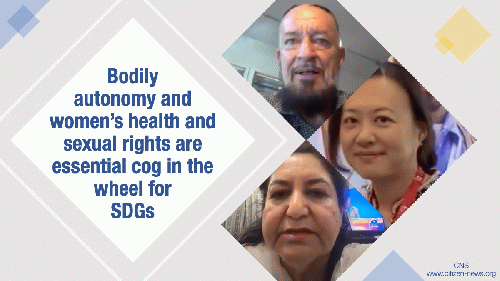Shadow pandemic: Gender-based violence is one of the biggest human rights violations
SHOBHA SHUKLA - CNS

Unless we ensure gender equality for all, we will fail to deliver on other SDGs
(Image by CNS) Details DMCA
Although the world gave unprecedented attention to the COVID-19 pandemic, yet it has long ignored paying heed to one of the most widespread violations of human rights globally: sexual and other forms of gender-based violence - a shadow pandemic that has been menacingly lurking since long. May be it is the deep-seated patriarchy and its sinister links with capitalism and religious fundamentalism that prevents us from ending all forms of violence against women and girls, and other people of different gender identities and expressions.
When danger is from those who are closest to us
At least one in every three women in countries of Asia and the Pacific have suffered one or more forms of gender-based violence - which includes intimate partner violence. 19% of women in South Asia, 9% in Southeast Asia and between 19% and 30% in the Pacific had experienced physical and/or sexual intimate partner violence in the past 12 months (as per 2018 data). Lifetime prevalence of intimate partner violence is as high as 53% in Kiribati and 50% in the Solomon Islands.
Access to women's health services way off-the-mark
The world invested a fortune in finding vaccines against COVID-19, and rolling them out. But despite having the know-how, why are we failing to ensure every woman and girl has full access to sexual and reproductive health services with dignity?
Although India's total fertility rate has declined to 2.2, maternal mortality ratio (deaths per 100,000 live births) remains high at 97. Almost 20% births are not attended by skilled health personnel; 27% girls get married before the age of 18 and unintended pregnancy rate per 1000 women aged 15-49 years is 62, as per UNFPA data.
(Note: You can view every article as one long page if you sign up as an Advocate Member, or higher).





